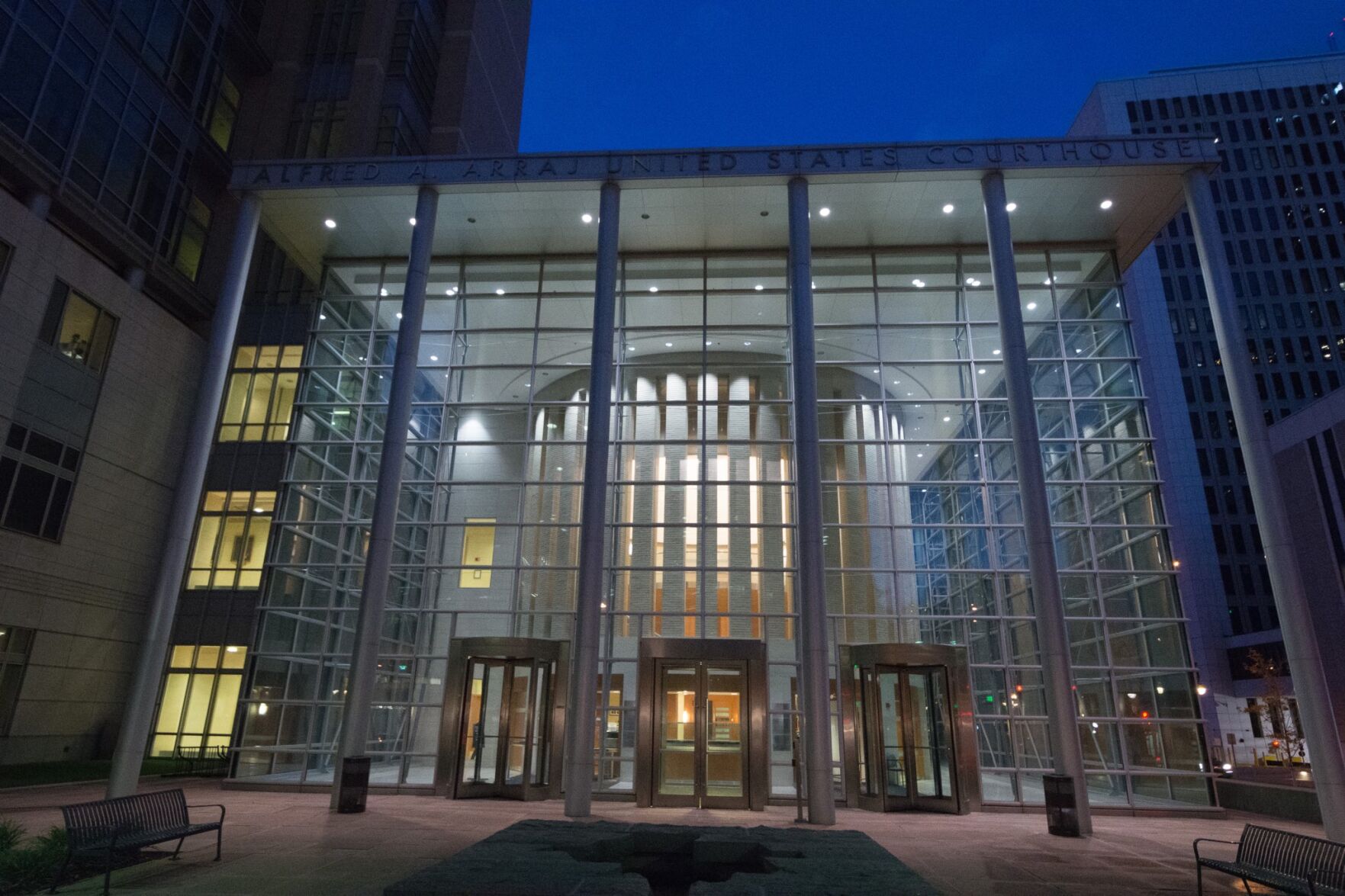Federal judge refuses to send Colorado Springs man’s lawsuit alleging ICE brutality to Louisiana

A federal judge in Colorado rebuffed the government’s request to transfer a Colorado Springs man’s lawsuit to Louisiana, in which he alleges immigration officers physically assaulted and infected him with COVID-19 during his detention.
Acheleke Fuanya, an asylum seeker from Cameroon, left the Winn Correctional Center in March 2021 and sued the U.S. government for battery, emotional distress and negligence. Five U.S. Immigration and Customs Enforcement officers allegedly jumped him and inflicted lingering physical pain while forcing him to sign paperwork.
Now living in Colorado Springs while his asylum claim is pending before an appeals court, Fuanya filed his lawsuit in Colorado’s federal trial court last August. The U.S. Attorney’s Office shortly afterward requested a transfer to the Western District of Louisiana, where the Winn facility is located. But U.S. District Court Senior Judge Robert E. Blackburn waved aside the government’s argument that the case should proceed where the ICE guards live.
Blackburn, in an April 6 order, wrote that while Fuanya’s claims alleged violations of Louisiana law, the circumstances “involving the treatment of immigrants while in federal detention are not particular to Louisiana but rather resonate nationally.”
Attorney Jeremy Jong of Al Otro Lado, an immigrant-support organization that is representing Fuanya, said his client filed his lawsuit in Colorado because Fuanya had the right to sue the government where he lives like any citizen can.
“That the Department of Justice would argue otherwise is just another example of this administration choosing to expend resources to make the lives of immigrants more difficult,” Jong said. “That they chose to try to limit the rights of immigrants here rather than to take any action against the ICE agents who attacked and choked Mr. Fuanya speaks volumes.”
Jong did not answer explicitly whether the location of the lawsuit had anything to do with the composition of the Western District of Louisiana’s bench. Five judges there are appointees of former President Donald Trump, whose administration took a restrictive approach to immigration policy. Louisiana also sits within the U.S. Court of Appeals for the Fifth Circuit, one of the most conservative federal courts in the country.
Jong instead indicated he was confident Fuanya would prevail in either jurisdiction.
In his lawsuit, Fuanya described torture at the hands of the Cameroonian police, who also “disappeared” his father and uncle. In April 2019, he presented himself at the San Ysidro port of entry near San Diego. ICE took him into custody, where he remained for two years.
Fuanya alleged that on Jan. 14, 2021, a private prison guard told Fuanya he needed to sign a piece of paper. Fuanya demurred, saying his lawyer had advised him to consult with her first. Later that day, the ICE officers physically forced Fuanya to give his fingerprint and signature by allegedly pinning him to the ground and bending his finger backward.
“Even after Mr. Fuanya begged the officers to release him because he could not breathe, two officers responded ‘we don’t care.’ One officer remarked, ‘we didn’t ask for you people to come here’,” the lawsuit read.
He also alleged that the guards’ lack of masks caused him to contract COVID-19. Fuanya still suffers the long-term symptoms of both the disease and the assault.
The government in November filed a request that Blackburn transfer the case to the Western District of Louisiana, citing multiple reasons: lawyers for both parties are in Louisiana, the judges there are familiar with Louisiana law and caseloads are lower than in Colorado.
“The United States is aware of no witness located in Colorado whose testimony would be core to the allegations in the complaint, other than plaintiff himself,” wrote Assistant U.S. Attorney Lauren M. Dickey in Colorado. She added that because Fuanya was only released on “temporary, conditional parole,” he could not establish himself as a Colorado resident who has the intent to remain in the state.
Fuanya disputed each of those points. Depositions could occur over video, Louisiana law against battery and emotional distress is similar to Colorado’s, and Fuanya has medical and family witnesses in Colorado who can provide evidence, wrote Jong on behalf of Fuanya.
Jong added that his client lives and works in Colorado, and returning to Louisiana would trigger his post-traumatic stress disorder.
Blackburn agreed that the case should stay in Colorado. The government, he wrote, can more easily bear the costs of transporting its witnesses to Colorado than vice versa. The judge referenced a similar lawsuit that arose in New Jersey, in which a Guatemalan refugee lodged claims against the government for the death of her young daughter, stemming from an infection in a Texas detention facility.
In denying the government’s request to transfer the case to the Western District of Texas, U.S. District Court Judge Kevin McNulty wrote that his choices were “(a) whether the United States Government, present in every district and possessing nearly unlimited resources, should litigate a suit in New Jersey; or (b) whether I should require a destitute, grieving refugee from an impoverished nation to repeatedly make an 1,800 mile trip from New Jersey to Texas to litigate her case.”
Blackburn incorporated McNulty’s comments into his own reasoning. He also was “confident” he could understand the elements of the relevant Louisiana laws, and disputed that Colorado’s court docket is significantly busier than the Western District of Louisiana’s.
The case is Fuanya v. United States.














